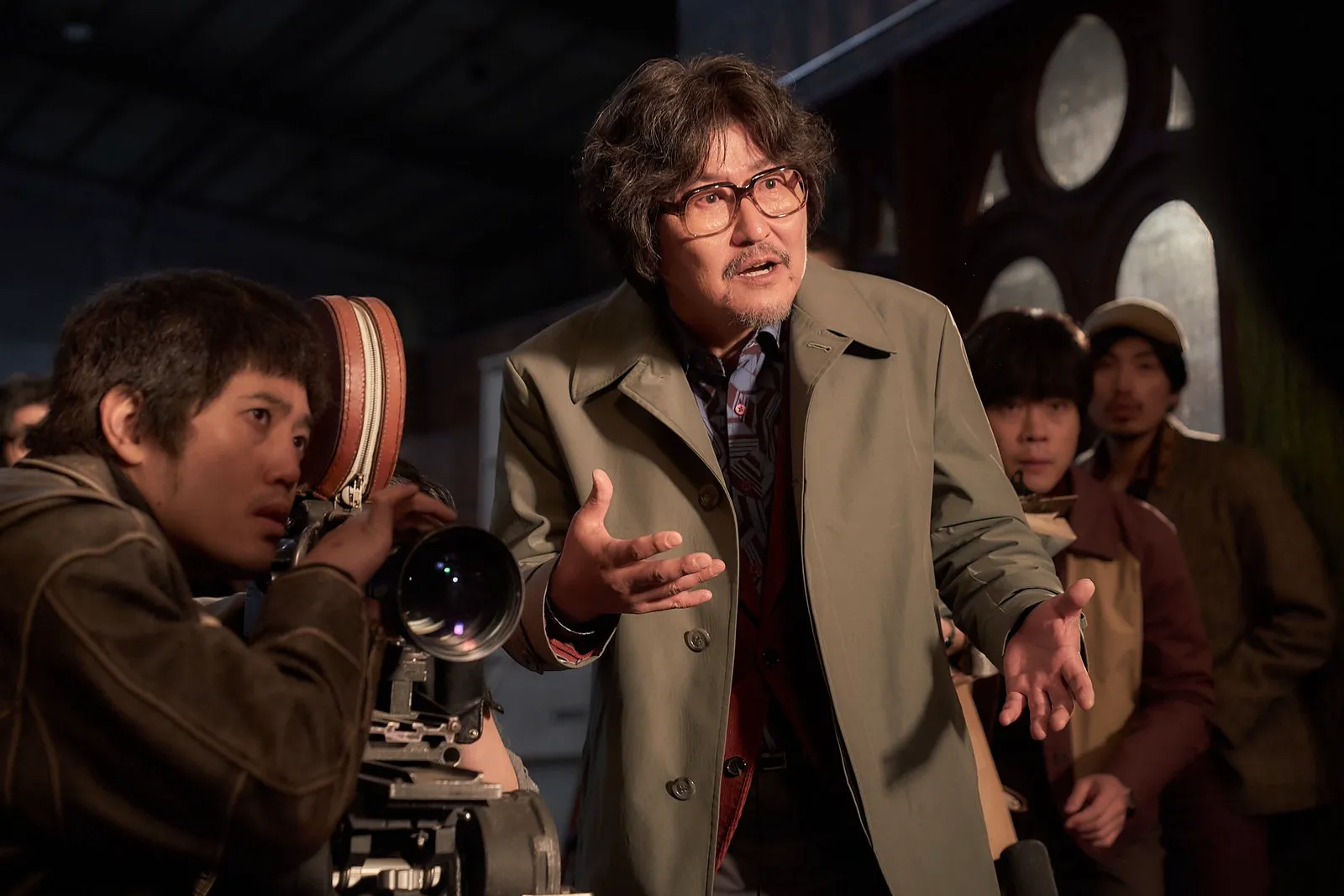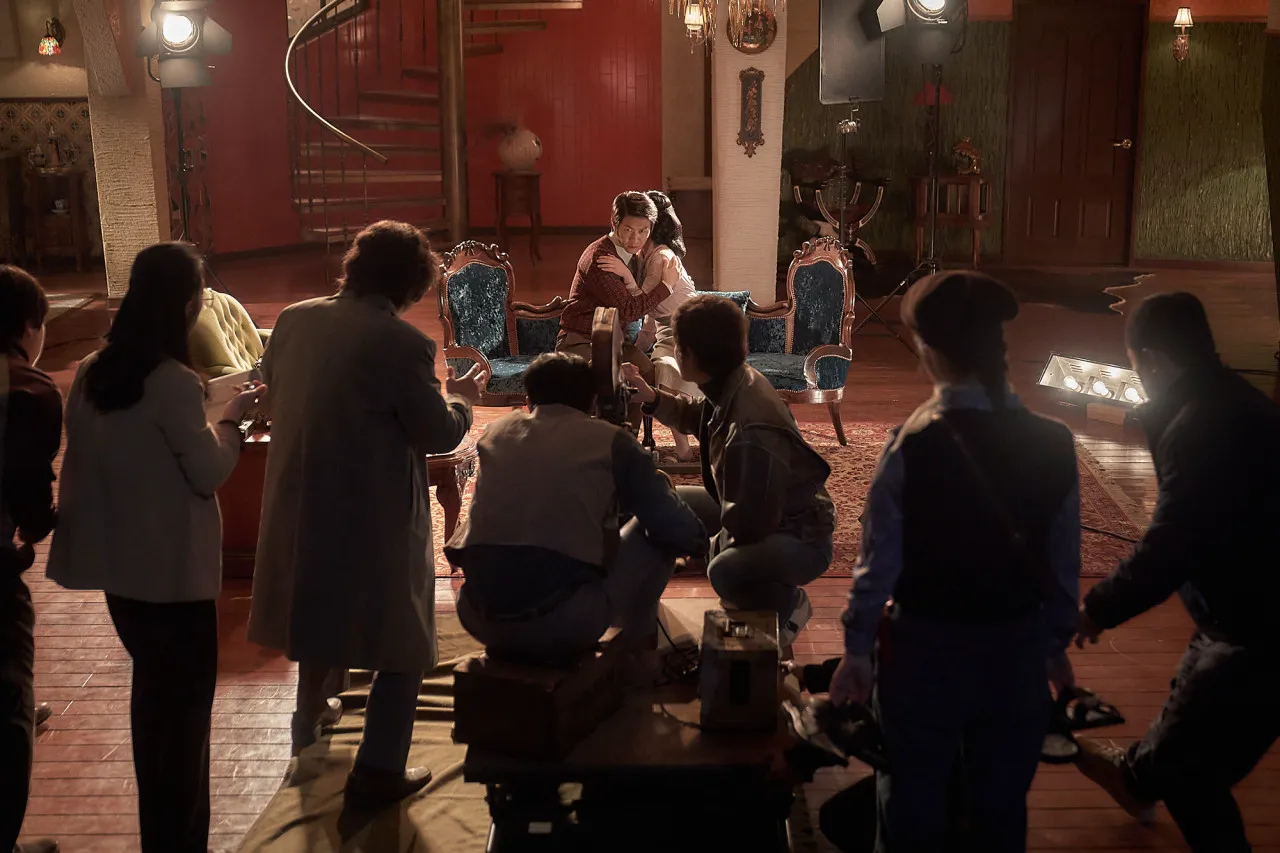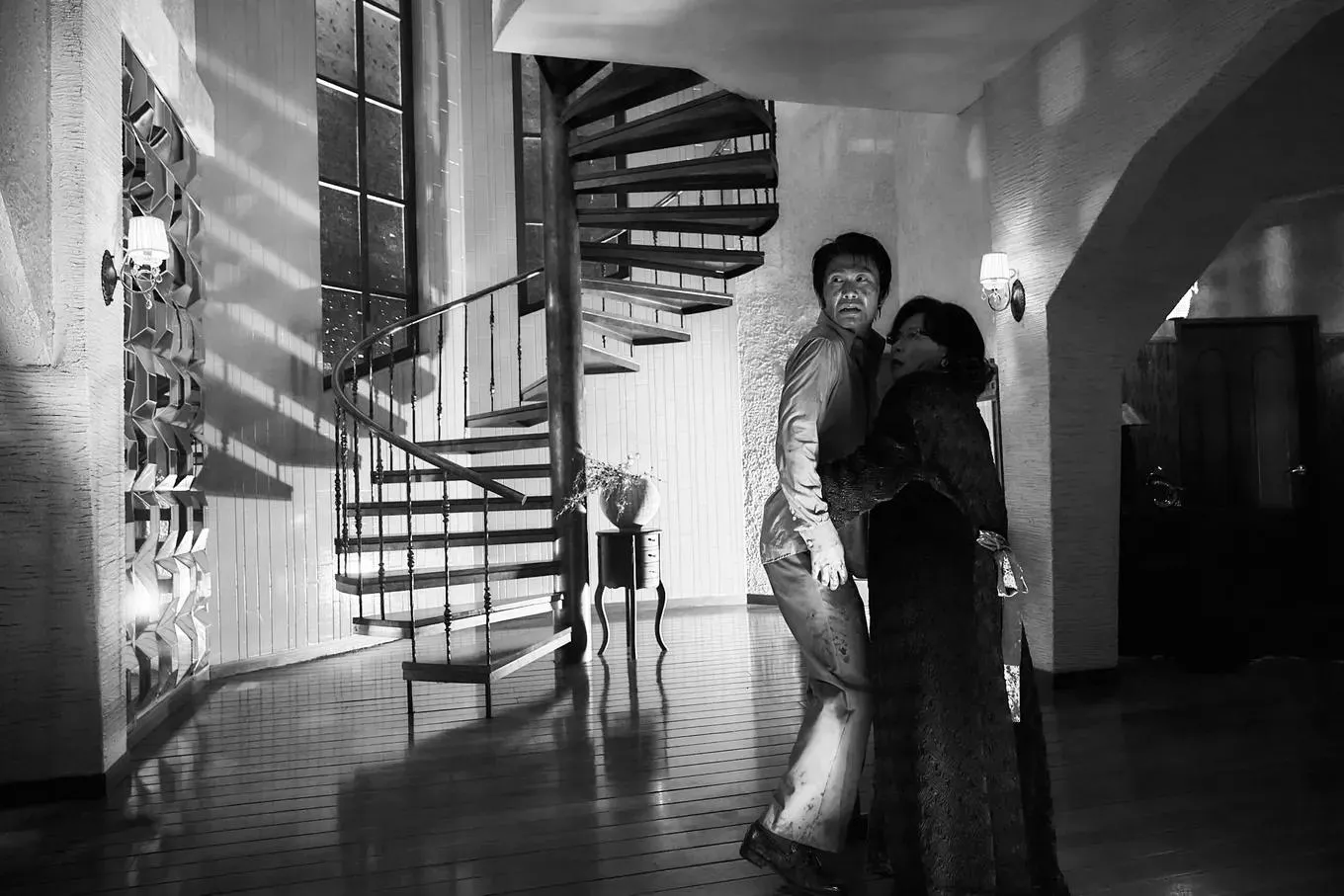The Web: A Glimpse into South Korea’s Golden Age of Cinema
The early 1970s. Director Kim Ki-yeol (Song Kang-ho) is plagued by sleepless nights, haunted by unfinished scenes from his latest film, “Cobweb.” Convinced that a few days of reshoots, especially the final scene, will transform the mediocre film into a masterpiece, he faces resistance from all sides. The studio director (Jang Young-nam) believes the film is complete and that further changes are unnecessary. The censorship committee is unlikely to approve a new script, and the lead actors (Oh Jung-se and Krystal Jung) are already committed to other projects. Aided by a young producer, Shin Mi-do (Jeon Yeo-bin), Director Kim resorts to desperate measures, including locking the actors in the studio and bribing a censor (Jang Nam-yeol), to secretly complete his vision.

Song Kang-ho as Kim in a still from “Cobweb”
“Cobweb” premiered in the non-competitive section of this year’s Cannes Film Festival. While director Kim Jee-woon has been somewhat overshadowed by Park Chan-wook and Bong Joon-ho in recent years, he remains a significant figure in Korean cinema. He has worked both in South Korea and in the United States, where he directed Arnold Schwarzenegger in “The Last Stand.” His diverse filmography includes the sci-fi series “Dr. Brain” for Apple TV+, the bloody thriller “I Saw the Devil,” the wild western “The Good, the Bad, the Weird,” the stylish action-noir “A Bittersweet Life,” and the historical drama “The Age of Shadows.” However, his most acclaimed works were primarily made in the 2000s and early 2010s.
Inspiration Behind the Film
Kim Jee-woon has stated that the idea for “Cobweb” came to him during the pandemic, when he began reflecting on the history of Korean cinema. Today, South Korean films are successful worldwide and participate in prestigious film festivals. The first wave of Korean cinema occurred in the 1960s, and the films of that era influenced many modern classics. However, Korean films from the 1960s did not reach Europe and the United States until much later, thanks to the popularity of works by Park Chan-wook, Bong Joon-ho, Kim Jee-woon, and others. The director of “Cobweb” recalled that in the 1970s, film production slowed dramatically, censorship flourished, and creating masterpieces became much more difficult. Kim tried to imagine himself in the shoes of the filmmakers of that time, which led to the creation of the film’s protagonist.

Oh Jung-se as Kang Ho-se in a still from “Cobweb”
Kim Ki-yeol is a struggling director living in the shadow of his deceased mentor, Shin (Jung Woo-sung). His only successful film was his debut, and rumors suggest he stole the script from his teacher. Since then, he has experienced a string of failures. Kim is obsessed with proving to the press and the audience that he is a talented filmmaker. One of the central themes of the film is the ambition of artists, often bordering on madness. It is hard to imagine that reshooting a few scenes could fundamentally change a film, but Kim firmly believes in his vision and is willing to torment his actors, deceive studio producers, and even risk his life to film a large-scale fire scene.
A Commentary on Korean Cinema
“Cobweb” offers a fascinating glimpse into the history of Korean cinema. Modern audiences may not be aware of the challenges faced by filmmakers in the post-war era, who had to navigate censorship, please producers, and maintain their reputation among their peers. Parallels can be drawn between Korean and Soviet cinema of the 1970s, which were both subject to political and ethical restrictions.
Kim Jee-woon pays homage to his predecessors. The main character shares traits with director Kim Ki-young, and the film being reshot is reminiscent of the 1960 film “The Housemaid.” One of the characters is named Madame Oh, a nod to the Japanese drama “Madame O” by Seiichi Fukada. “Cobweb” likely contains many other Easter eggs, but recognizing them all requires extensive knowledge of Asian cinema from half a century ago.

Still from “Cobweb”
The director, played by Song Kang-ho, faces a multitude of problems. In addition to issues with producers and censors, he discovers that the lead actors were having an affair, and their relationship has now soured. Kim Jee-woon explores several interesting storylines simultaneously, but each is predictable and lacks sufficient dynamism. The director attempts to compensate for the lack of events by interweaving the production process with scenes from the film being shot. The struggling director, having gone through thick and thin, deserves a masterpiece.
Genre-Bending and Production Chaos
Korean cinema is known for its genre-bending and rapid transitions from thriller to comedy, and from action to melodrama. “Cobweb” contains numerous scenes from the film within the film. The audience witnesses a black production comedy, while the film being shot on set is an erotic psychological thriller. To differentiate between the two, Kim presents the main action in color and the reshoot scenes in monochrome. The genres do not blend seamlessly, and it is difficult to follow the fragmented events of the thriller being created.
Kim Jee-woon proves that he has not lost his directorial skills, but unfortunately, the artistic flourishes conceal a dull plot. The chaos on set is not insane enough to truly captivate, and the problems faced by the on-screen director are familiar. The author attempts to portray filmmaking as an unpredictable ride, but the anecdotes are only moderately interesting, nothing more. “Cobweb” is not terrible, but it is not particularly praiseworthy either.